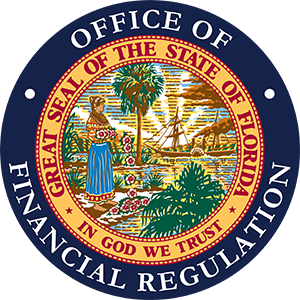Tallahassee, Fla. - The Florida Office of Financial Regulation (OFR) today announced the arrests of Leandro Obenauer and Myriam Torres on charges of engaging in organized fraud, a first degree felony. The arrests follow a warrant issued in 2016 in Orange County based on findings of an OFR investigation. Obenauer and Torres remained fugitives until their arrest on October 1, 2020. From October 2012 through February 2014, Obenauer and Torres are alleged to have engaged in various fraudulent activities relating to the sale and financing of residential real estate.
Attorney General Ashley Moody said, “This duo preyed on Floridians, including seniors. I applaud the work of local law enforcement, OFR investigators and my Statewide Prosecutors for their joint efforts to bring these fugitives to justice—never giving up on the case or losing hope that these crooks would one day answer for their crimes.”
CFO Jimmy Patronis said, “Fraud in Florida has reached epidemic proportions and it is my top priority to ensure consumers, and especially our seniors, are protected from scam artists. Thank you to the Statewide Prosecutors Office, local law enforcement, and the Office of Financial Regulation for their diligence in this case and bringing these fraudsters to justice before they strike again.”
OFR Commissioner Russell C. Weigel, III, said, “I appreciate the diligent work of our OFR investigators and local law enforcement in this case. My top priority is protecting Florida consumers and keeping Florida's financial marketplace safe for business. Repeat fraudsters who victimize prospective homeowners are especially troubling, and our agency will continue fighting to protect Floridians from financial scams and seek justice for victims."
Unsuspecting homebuyers allegedly provided funds to Obenauer and his associates, which were to be used to negotiate the sale of, secure financing for, and/or negotiate loan modifications for residential properties. Although Obenauer and Torres represented they owned the properties in question, an OFR investigation revealed the properties were never owned or controlled by any party related to the investigation. Seven victims in Orange, Seminole and Palm Beach counties were allegedly defrauded out of approximately $88,000. The OFR analysis revealed the victims' funds were used for the personal expenses of Obenauer and Torres. A third respondent in this scheme, Kevin Bayl, previously entered into a Deferred Prosecution Agreement with the Court.
The OFR investigation was opened based on a consumer complaint filed with the Attorney General's Office of Statewide Prosecution.
OFR Case Background
In a prior OFR investigation in 2001, Obenauer was found to have been involved in fraudulent activity relating to the sale and financing of residential real estate. Obenauer and his co-defendants sold homes they did not own, collected down payments from buyers, and attempted to secure financing in buyers’ names without their approval. On June 24, 2004, as a result of that OFR investigation, Obenauer was arrested and charged with racketeering, organized fraud, and multiple counts of grand theft. Obenauer pled guilty in that case and was sentenced to five years in state prison to be followed by 15 years of probation. Obenauer was released from prison on February 1, 2009, and was still serving probation at the time that the warrant leading to the current arrest was issued.
In the intervening period, while Obenauer remained a fugitive, the Indian Harbour Police Department received additional complaints against him, which led to his identification and arrest. The more recent complaints against Obenauer relate to a solar panel installation business, Solar CEO, which Obenauer allegedly used to target homeowners in order to advance a fraudulent home improvement loan scheme. Obenauer is alleged to have falsely claimed that he owned and operated the business as a licensed contractor and had homeowners apply for financing to obtain the panels. Complainants alleged that, although panels were sometimes installed, materials would often go unpaid, leaving the homeowners responsible for both the loans and subsequent construction liens levied by third-party vendors.
